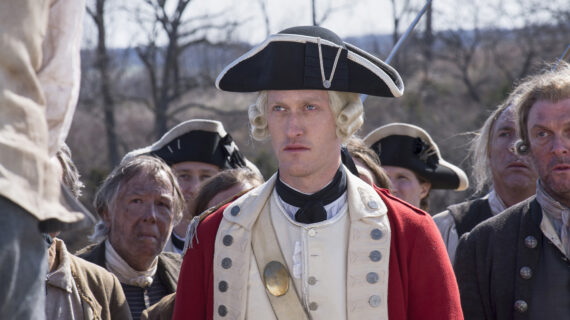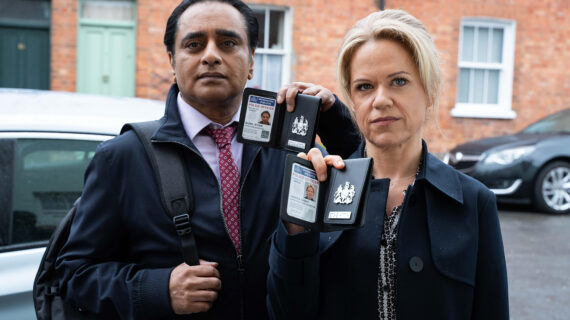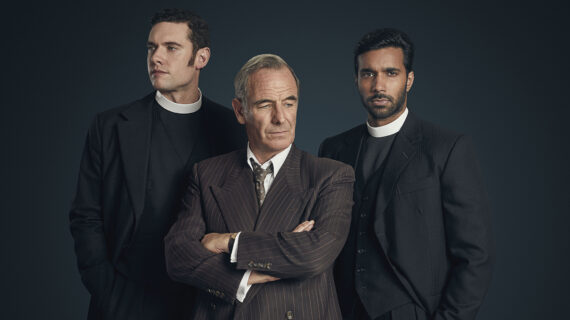Frederica Freyberg:
Turning to campaign finance news, raising money to run for office has been compared to a nuclear arms race. When it comes to incumbents in the state legislature, the race is being won by the Republicans. That’s according to a comprehensive new analysis by the Wisconsin Democracy Campaign. Mike McCabe is the executive director of the Wisconsin Democracy Campaign and he joins us now. Thanks for doing so.
Mike McCabe:
My pleasure.
Frederica Freyberg:
We just tell news of this casino decision being put off. What does that mean for campaign fund-raising?
Mike McCabe:
We’ve noticed a lot of big donations to the Republican Governors Association from the tribes and we’ve seen tribes on both sides of this dispute on the casino pour huge amounts of money. So now there are ads being run by the Republican Governors Association in support of Governor Walker. And now we know how those ads are being paid for.
Frederica Freyberg:
So back to the analysis that you did, though, on the campaign finance reporting. You found that Republican legislators have three times more cash in their accounts than Dems. Are Republicans just better at raising cash and have richer friends, or what’s this about?
Mike McCabe:
Money flows to power and Republicans are in control of both houses of the legislature. Very simply, there are more Republicans than Democrats out there raising money. But then also, while the state budget is being crafted, while any bills are being considered, interest groups want to influence that process. And the Republican leaders become magnets for that special interest money because they’re in a position of setting the agenda. They decide which bills are being voted on and which ones are stonewalled. And so Republicans have an advantage there. You know, over the course of years we’ve sometimes had the Democrats in charge and sometimes had the Republicans in charge, and money flows to power.
Frederica Freyberg:
And so when the Democrats held the majority, did they also hold the edge?
Mike McCabe:
They would hold a slight edge. You would see the money shift. But over the course of the last decade, some of that time Republicans have been in charge of the legislature. Some of the time the Democrats have been in charge. But over the entire decade Republicans have held a pretty substantial edge. So I think overall, the Republicans, their magnetic pole when it comes to money is stronger than the Democrats.
Frederica Freyberg:
How does redistricting play into fund-raising?
Mike McCabe:
You know, I think one of the things about fund-raising is that, you know, poll taxation, making people pay to vote, was outlawed back in the Civil Rights era. But what do we have now but a candidacy tax? To run for public office, you now have to bring an awful lot of money to that race. All this money that these legislators are raising is scaring away competition, and it’s making it that much more difficult for opposition to even form and for people to throw their hat in the ring. Redistricting plays a powerful role there as well. The lawmakers are not only sitting on all this campaign money which scares away competition, but they’ve also drawn the districts in a way that favors the incumbents. It makes it next to impossible for a challenger to compete, because they’ve filled their districts with voters who are inclined to vote for them. That’s where redistricting, I think, also weakens the powers of voters. All this campaign money weakens voters, but then also the way these district lines are drawn weakens voters.
Frederica Freyberg:
Very briefly, how do the candidates for governor stack up against each other in terms of fund-raising?
Mike McCabe:
Well, you know, so far Governor Walker has raised a lot more money than his opponent, Mary Burke. But, you know, she’s going to have plenty of money. Walker will have more when all is said and done. But I think both candidates will probably have enough money to get their message out.
Frederica Freyberg:
Total spent do you suppose in the governor’s race?
Mike McCabe:
Well, you know, we saw $81 million spent in the recall election in 2012. We’re not going to see that much. That was run under different rules. $36 million was the previous record for a normal election. We’ll see more than than $36 million, not as much as $81.
Frederica Freyberg:
That's lots of money. Mike McCabe, thanks very much.
Mike McCabe:
My pleasure.
Search Episodes
Related Stories from PBS Wisconsin's Blog

Donate to sign up. Activate and sign in to Passport. It's that easy to help PBS Wisconsin serve your community through media that educates, inspires, and entertains.
Make your membership gift today
Only for new users: Activate Passport using your code or email address
Already a member?
Look up my account
Need some help? Go to FAQ or visit PBS Passport Help
Need help accessing PBS Wisconsin anywhere?

Online Access | Platform & Device Access | Cable or Satellite Access | Over-The-Air Access
Visit Access Guide
Need help accessing PBS Wisconsin anywhere?

Visit Our
Live TV Access Guide
Online AccessPlatform & Device Access
Cable or Satellite Access
Over-The-Air Access
Visit Access Guide
 Passport
Passport

















Follow Us